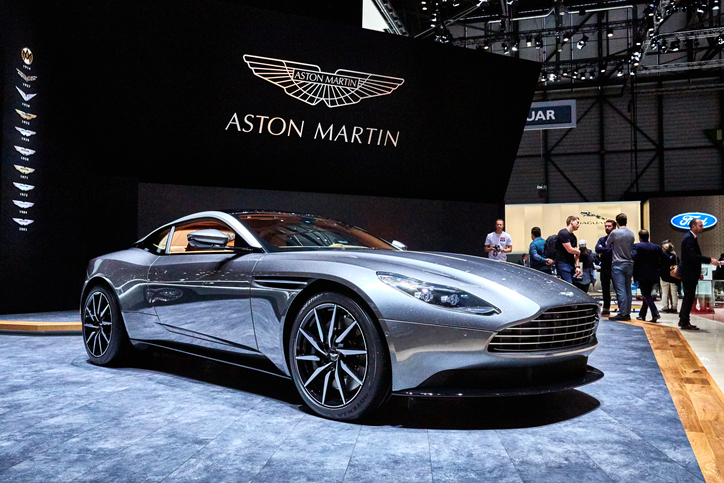Where now for Aston Martin shares?
It's been a miserable first year for Aston Martin Lagonda shares, but is 2020 looking brighter?
24th July 2019 12:44
by Graeme Evans from interactive investor
It's been a miserable first year for Aston Martin Lagonda shares, but is 2020 looking brighter?

When Aston Martin Lagonda (LSE:AML) shares hit reverse gear soon after joining the stock market amid much fanfare last October, CEO Andy Palmer insisted his focus was on the longer term. After all, it had taken the luxury carmaker 105 years to reach the "historic milestone" of an IPO.
Nine months on from offering 25% of the company to new investors, Aston Martin has lost 60% of its value and shareholders are struggling to see much light at the end of the tunnel. There's next year's launch of the DBX sports utility vehicle to look forward to, but that's more than offset by the disappointing sales trends at UK and Europe-based dealerships.
Palmer cautioned in May about the deteriorating trading environment, but any hopes that the company could weather the storm have been shattered by today's profits warning.
Shares tumbled 23% to below 800p as Aston Martin now expects dealerships to sell between 6,300 and 6,500 vehicles this year, compared with forecasts in February of between 7,100 and 7,300. This means the full-year underlying earnings margin will be around 20%, rather than the 24% previously forecast, with the operating margin closer to 8% than 13%.
It also adds to pressure on an already crucial second half of the year, when the launch of a number of special edition models should boost profitability in the fourth quarter. The company is also accelerating efforts to improve efficiency and lower its cost base.
Meanwhile, the global launch of the DBX is planned for December with the start of full production at its new St Athan facility in South Wales due in the second quarter of 2020.
The DBX is central to Palmer's drive to position the company for longer-term sustainable growth, with an increase in manufacturing footprint and expanded product range beyond its three current core models - the DB11, Vantage and DBS Superleggera.
The plan also includes the company's first full electric vehicle, the Rapide E, which is scheduled for launch in 2020. It is a strategy recently backed by Aston Martin's largest shareholder after private equity group Investindustrial offered £10 a share to increase its stake by 3%.
Despite today's disappointing wholesale performance, Palmer said maintaining quality of sales and protecting brand position was paramount. He added:
"We are today taking decisive action to manage inventory and the Aston Martin Lagonda brands for the long-term."
Palmer is encouraged by the continued strong demand in the Americas and Asia Pacific, where there are 42 and 44 dealerships respectively.
In a note published last week, analysts at Jefferies shared some of Palmer's optimism by nudging up their forecasts for 2020 earnings.
They said:
"Operating drivers will look significantly more attractive than auto peers in 2020, with the DBX launch, no major CO2 constraint and a bumper year for “specials” but these are fairly reflected in multiples considering execution risk and profit lumpiness."
Jefferies had a price target of 1,000p, while Goldman Sachs today stuck by its 1,500p estimate. They said: "Aston Martin is a medium-term story and its future is unlikely to be defined by 2019's performance.
"Nevertheless, concerns around operating risk as well as questions on Aston's ability to sustain volumes on vehicles that are more than 12 months old are all areas of concern for investors. Today's profit warning will add to these concerns."
These articles are provided for information purposes only. Occasionally, an opinion about whether to buy or sell a specific investment may be provided by third parties. The content is not intended to be a personal recommendation to buy or sell any financial instrument or product, or to adopt any investment strategy as it is not provided based on an assessment of your investing knowledge and experience, your financial situation or your investment objectives. The value of your investments, and the income derived from them, may go down as well as up. You may not get back all the money that you invest. The investments referred to in this article may not be suitable for all investors, and if in doubt, an investor should seek advice from a qualified investment adviser.
Full performance can be found on the company or index summary page on the interactive investor website. Simply click on the company's or index name highlighted in the article.